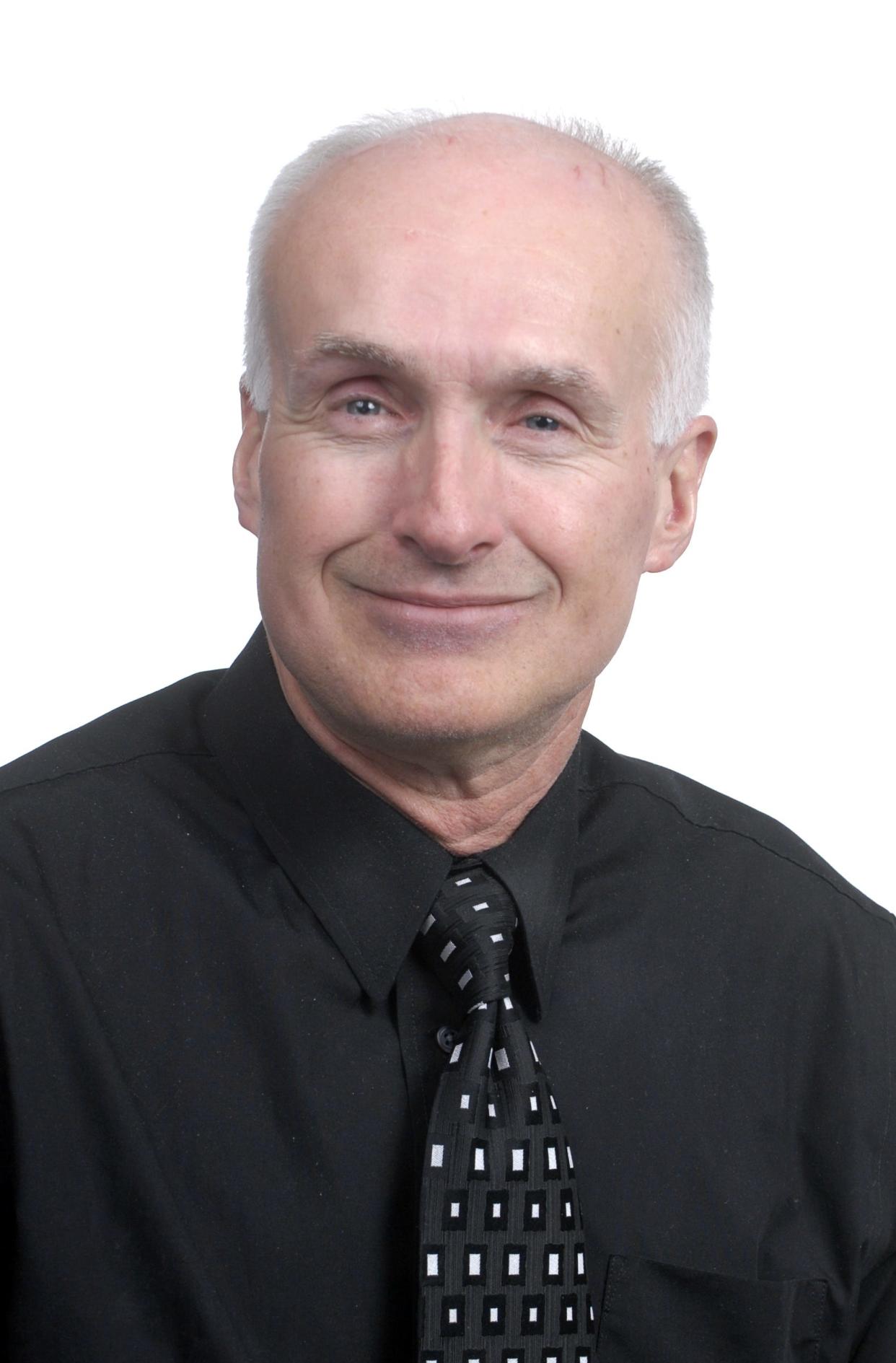Gary Brown: Late McCullough fosters love of history

- Oops!Something went wrong.Please try again later.
If it is true that we learn from our past, our country has lost an able and accomplished teacher.
Sunday Aug. 21, 2022
STANDING HEAD:Gary Brown
Guest Columnist
HEAD:Fostering a love of history
DIGITAL SUBHEAD:
If it is true that we learn from our past, our country has lost an able and accomplished teacher.
David McCullough, knowledgeable historian and masterful writer, died recently in his home in Hingham, Massachusetts, a community near Boston, not far from Quincy and Braintree. Aptly, his end came in a part of New England where much of American history began.
Although he is gone, the lessons of the late McCullough linger, and continue to communicate important parts of the history of the United States. The volumes and documentaries remain, so we can continue to be educated by them.
Urging generations of readers and listeners to look toward their past, McCullough taught us about our revolutionary ancestors with his books "1776" and "John Adams," both of which traced the founding of the United States of America.
In his volume "The Pioneers: The Heroic Story of the Settlers Who Brought the American Ideal West," we learned of the deeds of the men and women who forged their infant country.
Some of McCullough's biographies introduced their readers to individuals − "Truman" remembering President Harry Truman and "Mornings on Horseback" recalling President Theodore Roosevelt − while other of his books tell us about memorable events, such as "The Johnstown Flood," "The Great Bridge: The Epic Story of the Building of the Brooklyn Bridge," "The Wright Brothers," and "The Path Between the Seas: The Creation of the Panama Canal."
Viewers of the "The Civil War," made by filmmaker Ken Burns, heard history in McCullough's own voice, as he calmly yet sensitively narrated the documentary about one of the most timultuous and divisive periods in U.S. history.
It is sad that McCullough is gone, that his voice no longer will be heard on future documentaries, enjoyed by listeners during the reading of some of his own audio books, or attentively listened to during speaking engagements that he frequently undertook.
But, we should be gratified that we still can hear and read his words about moments long since passed merely by taking a simple trip to a library or bookstore.
McCullough's voice will continue to speak to us, long after he is gone.
Fostering a love of history
In the wake of his passing, I am in the process of re-reading a collection of his works that I borrowed from an online Ohio library system. The work of McCullough, at times pictured beside an ancient-appearing manual typewriter, transcends technology, it seems.
There was a time in my life that I wouldn't have read any of McCullough's books, or many traditional history textbooks unless assigned to learn from them by a teacher.
"I don't remember you ever being interested in history," a school chum recalled years after we had left lessons behind in our lives. He was accurate in his observation. During school days there were other distractions. Games. Parties. Family functions. Friends.
I can't say that David McCullough initially spawned my interest in the subject. I would have to credit a politically minded high school history teacher and a college history professor who was skilled at bringing the past to life in his classroom for sowing that seed.
Still, it was writers such as McCullough − along with Jon Meacham, Stephen E. Ambrose, James M. McPherson and Doris Kearns Goodwin − who fostered my interest as I grew from youth to adulthood.
I am not alone in my reading. There is a reason why there long has been the need to put a name on a "reserved" list at libraries after the release of each new book by one of those historians.
Historian at home in the past
Perhaps McCullough's voice was able to reach such a distant and disparate group of listeners because he himself had lived in a variety of different locations during his 89 years. An article in The Patriot Ledger in Quincy on the South Shore of Boston detailed McCullough's several locations of residency.
"Author David McCullough called numerous places home: Pittsburgh, where he was born. Washington D.C., where he worked for American Heritage magazine and wrote his first books. Martha's Vineyard and Boston's back bay, where he wrote more and won two Pulitzer Prizes. And then he settled in Hingham."
McCullough lived, appropriately, in a "handsome 1799 house in Hingham," the article by Lane Lambert noted, but he and his wife, Rosalee, "were well acquainted with the South Shore" by the time they bought their home in 2016.
"Three of their five children lived in town with their families at the time," explained Lambert. "In years past, McCullough stopped by his then-young grandchildren's elementary school classes. He spoke to students and teachers at Hingham High assemblies, as he continued to do so after he and Rosalee became town residents."
McCullough was passing along his love of history to a new generations of Americans. His voice was reaching the young as he was speaking about the old.
He was influencing the future as he spoke about the past. Such is the legacy of such beloved historians.
Reach Gary at gary.brown.rep@gmail.com. On Twitter: @gbrownREP.
This article originally appeared on The Repository: Gary Brown: Late McCullough fosters love of history

